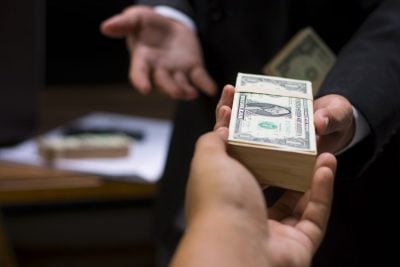Usury: The Crime of the Ages. “Bankers’ Greed”

All Global Research articles can be read in 51 languages by activating the Translate Website button below the author’s name (only available in desktop version).
To receive Global Research’s Daily Newsletter (selected articles), click here.
Click the share button above to email/forward this article to your friends and colleagues. Follow us on Instagram and Twitter and subscribe to our Telegram Channel. Feel free to repost and share widely Global Research articles.
Global Research Wants to Hear From You!
***
Many historians believe, as do I, that the happiest period of history in the Christian West was during the High Middle Ages within the towns that had grown up most notably within Germany, Italy, France, and England.
Probably the most accessible chronicle of what life was like then may be found in Chaucer’s “Canterbury Tales.”
At the centers of these towns were the Gothic cathedrals which were both spiritual and technological hubs. Characteristic of the economic life of the era was the fact that the Church had outlawed usury. This was the key to personal freedom.
The dividing line between that era and our own came into being around 1500, when the German Fugger family persuaded the Pope to begin to allow usury, a practice which quickly spread.
This practice assured that, gradually, all the wealth of society would inevitably accrue to the bankers, especially when they gained the privilege of creating paper money or book-entry credits “out of thin air” and then lending it at interest.
This was the greatest crime of the ages.
We need to remember that the Christian era began when Jesus made his last visit to Jerusalem by going to the Temple and throwing out the money lenders who had desecrated it.
The Temple symbolizes, of course, all human God-given life.
When usury became widespread after 1500, citizens gradually lost all their rights and their human sanctity when they became debtors to the money lenders and were legally mere chattel whose entire well-being, and even their lives (debtors prisons), were sacrificed to the bankers’ greed.
This was understood at the time. It’s what Shakespeare depicted in the “Merchant of Venice.” It’s what the Faust legends were about, with people now selling their souls to the devil as they ruined their fellow humans.
Now, 500 years later, the process is complete. The average person is a debt-slave, subject to regimes of endless war, subject at any time to being imprisoned for the most trivial offenses, and now worthy only of being killed off by the latest “plandemic.”
But humans would be free, so a handful of nations, led by the BRICS, are breaking away from the paradigm of slavery.
These nations are all marked by strong government-owned central banks that see their role as promoting societal welfare, not as prison-guards and propagandists who work for the bankers and other elites.
It now appears that the nations of the West controlled by the regime of usury have given up on world control and are trying merely to “secure the realm” by the ever-more perfect enslavement of their increasingly unhealthy and oppressed subject populations. Meanwhile, they push and probe around the perimeters looking for weaknesses among those nations who have said “no.”
There are indeed people in the West who seek to escape, but any organized movement is immediately crushed. Still, some few individuals may find a way…..Blessings to them.
*
Note to readers: Please click the share button above. Follow us on Instagram and Twitter and subscribe to our Telegram Channel. Feel free to repost and share widely Global Research articles.
This article was originally published on the author’s Substack, Three Sages.
Richard C. Cook is a co-founder and lead investigator for the American Geopolitical Institute. Mr. Cook is a retired U.S. federal analyst with extensive experience across various government agencies, including the U.S. Civil Service Commission, FDA, the Carter White House, NASA, and the U.S. Treasury. As a whistleblower at the time of the Challenger disaster, he exposed the flawed O-ring joints that destroyed the Shuttle, documenting his story in his book “Challenger Revealed.” After serving at Treasury, he became a vocal critic of the private finance-controlled monetary system, detailing his concerns in “We Hold These Truths: The Hope of Monetary Reform.” He served as an advisor to the American Monetary Institute and worked with Congressman Dennis Kucinich to advocate for replacing the Federal Reserve with a genuine national currency. See his new book, Our Country, Then and Now, Clarity Press, 2023.
“Every human enterprise must serve life, must seek to enrich existence on earth, lest man become enslaved where he seeks to establish his dominion!” Bô Yin Râ (Joseph Anton Schneiderfranken, 1876-1943), Translation by Posthumus Projects Amsterdam, 2014. Also see the Kober Press edition of The Book on the Living God here.

